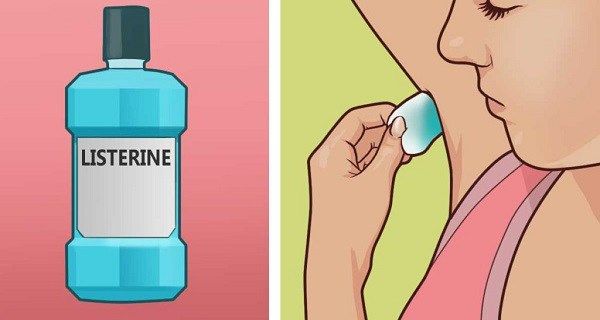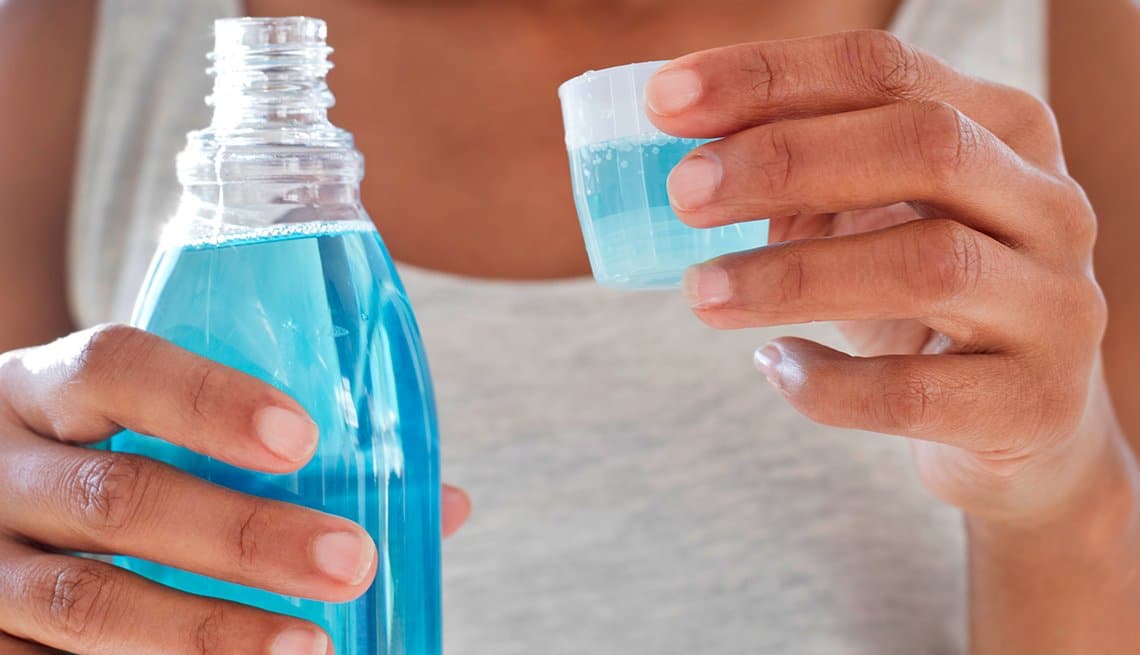Mouthwash is primarily an antiseptic but sometimes people use it as a disinfectant. Today, people use the two words interchangeably causing more confusion. Is it ideal to use mouth as a disinfectant? How effective is mouthwash for disinfecting objects and surfaces?. Continue reading to find out…
Disinfectants are chemical agents that are used to destroy microorganisms on inanimate objects and they typically come in high concentrations. While Mouthwash, also known as an oral rinse, is a liquid substance that is used to rinse the teeth, gums, and mouth. It usually has an antiseptic in it to destroy bacteria that live between your teeth and on your tongue.
Mouthwash is primarily an antiseptic agent that is combined with other ingredients such as mint (flavoring agent), sorbitol/saccharine (sweetening agent), and the antiseptic agent (alcohol, methyl salicylate, thymol, and/or benzoic acid) is present in a low concentration. The antiseptic agents are low in concentration compared to actual disinfectants so that it does not cause complications such as ulcers in the gastrointestinal tract.
One of the components, chlorhexidine, is used in both mouthwashes and disinfectants, but the percentage of composition varies. In mouthwashes, it’s 0.12%, 0.2%, or 0.1%, which means it’s used in a very small amount, whereas in disinfectants, it’s either 2% or 5%.
So, technically, mouthwash cannot be used as a disinfectant, and disinfectant cannot be used as a mouthwash.
Recommended: What Can Expired Mouthwash Be Used For?
So, based on these considerations, I believe mouthwash can be used as a disinfectant but it cannot be very effective like an actual disinfectant. Only if the concentration of the antiseptic agent in mouthwash is increased to a high degree will it act fully as a disinfectant.
In fact, using mouthwashes as a disinfectant will be very less effective and costlier. Therefore, it is best you stick with actual disinfectants than mouthwashes. Only use mouthwash in times of emergency or when very necessary.
Can Listerine Be Used As a Disinfectant?
Yes, Listerine can be used as a disinfectant but it won’t be as active as the usual disinfectants depending on the nature of the micro-organisms.
Certain mouthwashes like Listerine contains up to 40% alcohol. They can destroy some bacteria, but are not effective against viruses and some stubborn bacteria. Listerine contains ethyl alcohol, which is the same form of alcohol found in alcoholic drinks. This form of alcohol has some anti-bacterial properties but has no antiviral properties.

Can You Use Mouthwash As An Antiseptic?
Yes, mouthwash can be used as an antiseptic. Antiseptic mouthwash is intended to kill germs in the mouth while still keeping it clean. Mouthwash contains some agents that make it a great cleaner and disinfectant for other surfaces around the house.
Recommended: Can You Use Any Mouthwash For Foot Soak?
Bacteria can be killed by rinsing your mouth with an antiseptic mouthwash. Food particles, sugar residues, and plaque accumulation can all endanger the health of your teeth and cause periodontal tissues. But with proper and regular use of mouthwash, these problems can be taken care of.
Is Mouthwash a Disinfectant Or Antiseptic?
Mouthwash is an antiseptic that is why it is used on the body. Both antiseptics and disinfectants destroy microorganisms, and many people confuse the two. Antiseptics are also used as skin disinfectants, which adds to the mystery.
However, antiseptics and disinfectants are not the same thing. Antiseptics are used on living surfaces, while disinfectants are used on nonliving surfaces like countertops and handrails. In a surgical environment, for instance, a doctor will apply an antiseptic to the surgical site on a patient’s body and sterilize the operating table with a disinfectant.
Recommended: 5 Best Mouthwash For Foot Soak
Antiseptics and disinfectants both contain biocides, which are chemical agents that kill bacteria. Antiseptics and disinfectants both use hydrogen peroxide as a basic ingredient. Antiseptics, on the other hand, typically have lower biocide concentrations than disinfectants for health reasons.
Conclusion
Mouthwash is not an ideal disinfectant but it can be used as a disinfectant when there is no other available option. It is less effective than usual disinfectants because the concentrations of the active ingredients in a mouthwash are low compared to those in normal disinfectants. Only if the concentration of the antiseptic agent in mouthwash is increased to a high degree will it act fully as a disinfectant.
Among the mouthwashes, Listerine stands out and is sometimes useful as a disinfectant because it contains about 40% alcohol. The alcohol present is ethyl alcohol which is not very active against stubborn bacteria and viruses.
Mouthwashes are primarily an antiseptic because they are made for use on the living body. Disinfectants are meant to be used on inanimate objects.
